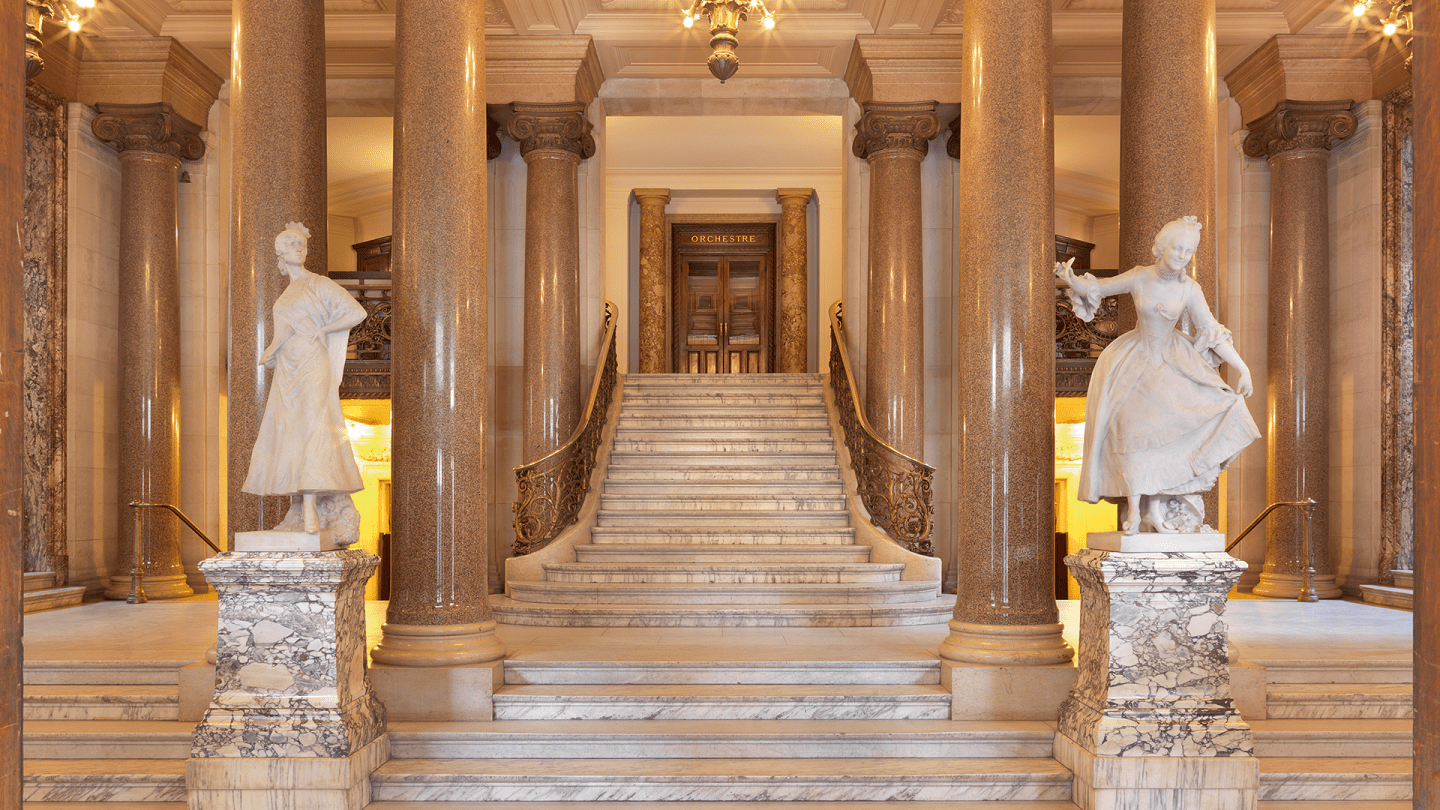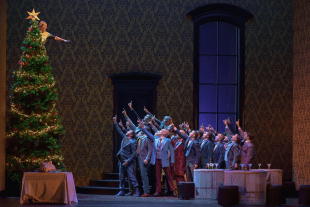Give little credence to clichés
Clichés
Cliché
noun
Trite, stereotype or expression that has been used too often and is therefore not original or is considered as old-fashioned thinking
Example : The Opéra Comique is for old people and comedians.
YES, the Opéra-Comique is open to all audiences.
Whether you are a kid, retired, a teacher without students, a rebellious teenager or on a date, dare to take the plunge… and be surprised by the variety of the programme, the diversity of the public and our fair prices.
No, yes, sometimes. Everything on stage isn’t necessarily comical or funny. Originally, the term “comic opera” designates a theatre genre mixing the sung and the spoken. To some extent, it is the forerunner of the musical genre.
Several options are available that will help you understand their story and history!
Before the show :
45 minutes before the performance, meet the playwright to learn all you need to know about the opera you’re about to see and about the full context of its creation. Or if you prefer, join the choirmaster to sing some of the tunes you’re about to hear.
You can also discover backstage and behind the scene images on our social networks.
During the show :
Immerse yourself in the music and stage direction. French surtitles are displayed above the stage, even if the opera is performed in French.
Taking into account the singers, the musicians, the decors, the costumes…the production of an opera is very expensive. Nevertheless, we are committed to welcoming all audiences and to offering attractive rates to those who can’t afford premiums seats at full price.
We offer discounts to :
- Young people aged 18 to 35
- People with disabilities
- School groups
- Socio-cultural organisations and associations
- Families
- Discount card holders
Three-piece suits and corsets are over but don’t hesitate to be dressed to the nines. If not, jeans and trainers and fine! The most important thing is to be comfortable.
As its name suggests, the Opéra-Comique plays operas. But we also programme concerts, commented recitals, events, shows dedicated to young audiences, seminars, evening parties… and many other things !
Any other questions ?
It’s up to you, depending on your mood, a bar and a catering service are available in the Foyer. It is the social place to be, whether to exchange on social issues, answer your notifications or even meet your soul mate.
For your own convenience, don’t hesitate to come 30 minutes before the start of the show. Our reception staff is here to guide you.
Toï, toï, toï : Before entering the stage, artists have the habit to wish each other good luck using the expression“Toï, toï, toï “. It comes as a replacement for the habit of spitting which was customary in the XVIII century.
Other artists prefer the expression “merde” which refers to the parade of horse-drawn carriages in front of the first theatres and the amount of horse manure left by the animals. A large quantity of manure was the sign of gathering crowds and of a successful show!
Rabbit : Originally, a large number of the technicians working at the Opéra-Comique came from the sailing industry. This explains why some of the words forbidden on board boats are also forbidden on stage. The word “rope”, synonymous with death, for example, or the word “rabbit”, because the animal could gnaw the ropes.
Maid : When the opera house is closed, it is customary to light a nightlight in the middle of the stage. Nicknamed the ‘Maid’ it is supposed to prevent ghosts from haunting the opera house at night. On a more practical note, it enables technicians to find their way without having to turn all the lights back on.
Cuprous oxide : There was a time when green costumes were dyed with cuprous oxide, cyanide or other toxic and dangerous products. It is also said that Molière died dressed in green. Considered cursed, the colour hasn’t been worn on stage for a long time.
Yack hair : The Opéra-Comique has workshops and studios in which costumes, accessories and wigs are designed. Wigs are usually made of natural hair but to bring some texture and density… there’s nothing like yack hair !
Bath : The boxes located by the orchestra are called the “baths”, not because one could wash but because they were as hot as a hot bath…
For any other questions, please see our FAQ page :







